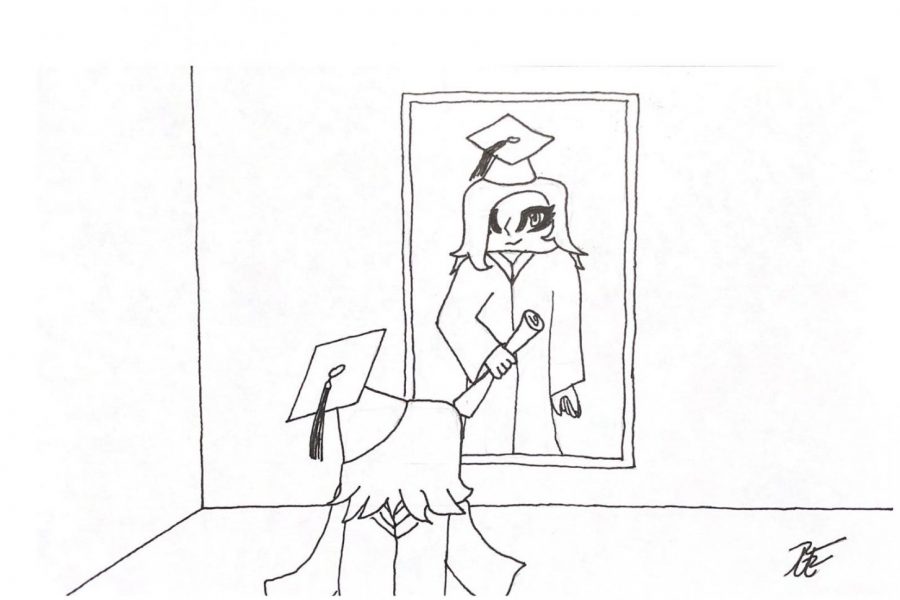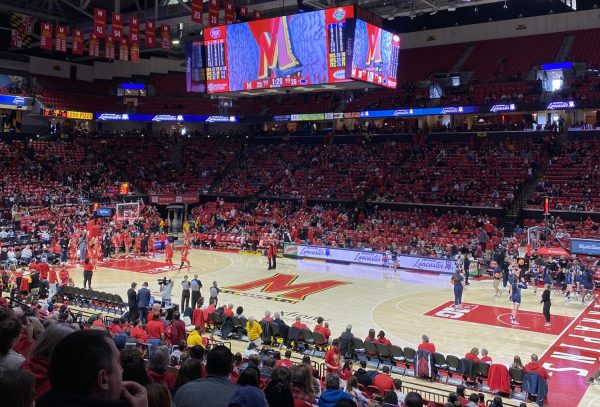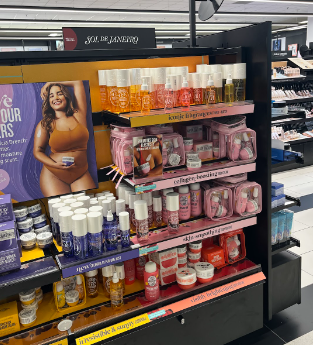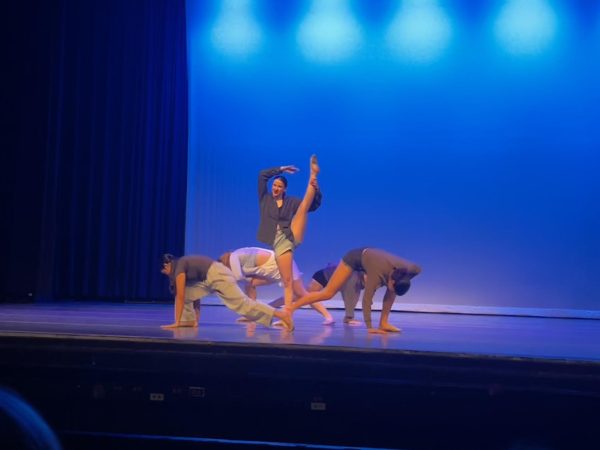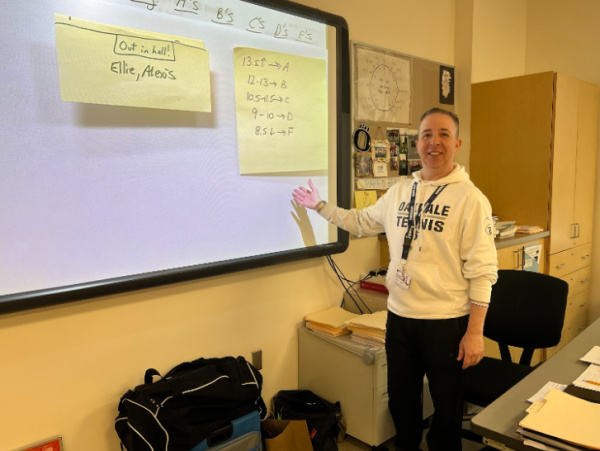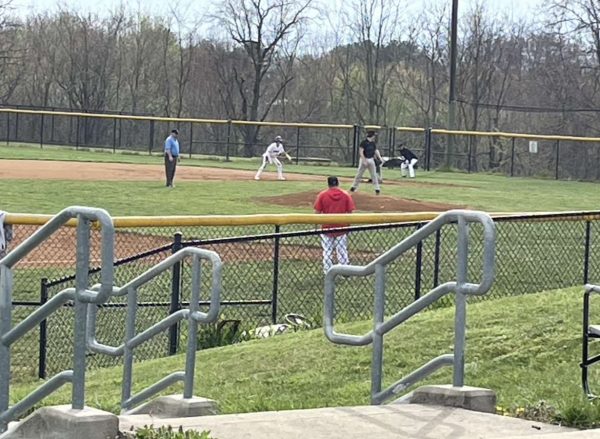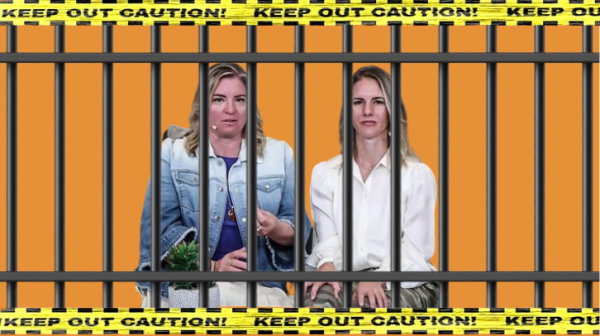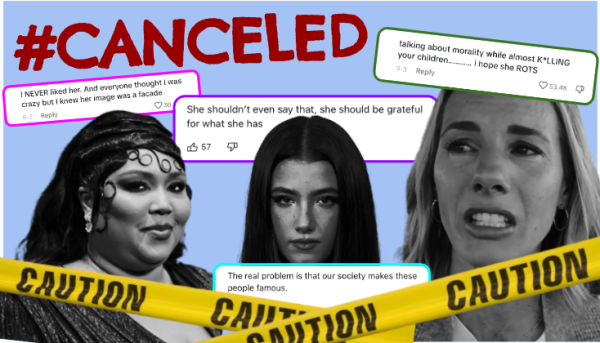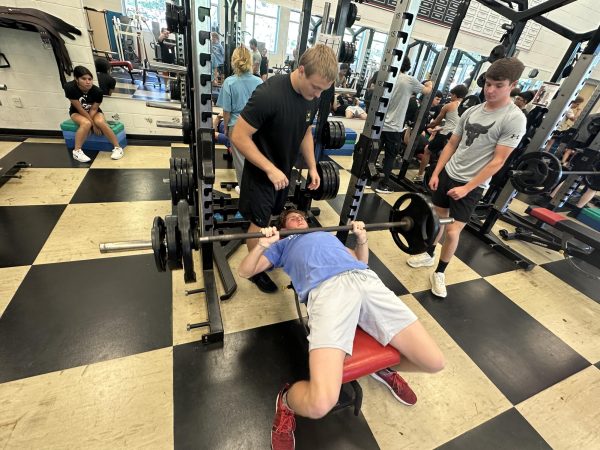Middle School Honor Societies: Does the benefit of membership outweigh the pressure?
When my young self looks in the mirror, can I see the future leader I want to be?
Being a sophomore, I find myself constantly analyzing my involvement in school thus far and the crushing importance of my next two years. With junior year comes the college application process, SATs and honor society applications. My friends all freak out about honor society acceptance, but I was curious. Is membership in an honor society the key to college acceptance? Am I already at a disadvantage because I don’t have middle school leadership?
In early April, I had the chance to ask an expert this question. I spoke with college advisers from universities across Maryland at our high school’s annual college fair. The purpose of the event is for high school students to speak briefly with these advisers about any questions they may have related to their university and the application process.
I decided to ask representatives from McDaniel College, Washington College, and Stevenson University how they view honor societies on college applications.
I was extremely surprised to find that these three colleges see honor societies as just another extracurricular and a way to create an assumption about who that student is. They said, most colleges put more weight on AP classes, dual enrollment classes, grades, and GPA.
Some of my peers had the opportunity to be in National Junior Honor Society for middle- schoolers. I thought I was missing out on a key accomplishment–maybe I’m not.
If colleges don’t emphasize acceptance of students in honor societies in high school, I don’t see the purpose of “junior honor societies.”
Although many believe that it is never to early to start planning for college, how early is too early?
Those who know me, know I’m someone who gets stressed easily. I think that junior societies put excessive pressure on younger students. As a sophomore, I already feel pressure a year in advance to prepare myself for writing my National Honor Society application.
Since the summer before freshman year, I have been thinking about leadership and getting myself involved in other opportunities specifically to help secure my success on a future college application. Would I be better prepared for applying to honor societies if I had been in a middle school honor society? That’s a good question.
Junior Emily Webb thinks the answer to that question is “Yes.” She was president of the National Junior Honor Society at her middle school, Böblingen Elementary Middle School, in Stuttgart, Germany. Today, Webb is an SGA leader and newspaper editor at LHS.
Webb said, “I think that the leadership experience and the communication skills that it gave me in middle school set me up for getting involved when I got to high school. It makes the experience [high school] less intimidating.”
On the other hand, English teacher, Mrs. Mary Ellen Newcomb, is a strong “No” about establishing a National Junior English Honor Society. She previously taught at the middle school level. She said, “I think it’s putting an undue burden on middle school students as they should just enjoy reading and, hopefully, do activities that help them enjoy it [language arts]. Personally, I think we are pushing so many things that add pressure on students down into the low grades to the point where students get burned out.”
The article, “There is no room for ‘average’ students these days. Here’s why that worries me.” by Jacque Gorelick supports Newcomb’s notion that school systems are continuing to pressure young students, and causing them to burn-out. The author states, “Kindergarten is the new first grade, and middle school is engineered as a fast track to the Ivy Leagues. New curriculum sifts the exceptional from the average, often allowing the latter to struggle – all for the sake of high test scores, college acceptance rates and district accolades.”
The article also discusses a survey done by the APA that says “34% of middle schoolers rated grades, school and homework as their biggest stressors.” Obviously, stress among middle students is truly a big problem. My worries are shared by many.
The competition for college acceptance is a part of the burn out, but one very important benefit of NHS is the college accolades that come with becoming a member. NHS, and other honor societies, not only look great on college applications but the organization also gives its members college admission and financial aid planning options. The NJHS offers early college planning through membership. While this advice is beneficial for high school students, I can’t see how useful these college head-start opportunities are for middle schoolers. In addition, our Naviance system is comprehensive. I’m not sure how much more I would go outside of that platform.
English teacher, Mary Troxel, taught at Windsor Knolls Middle School. She said, “There really is no point in the long run. The point [of honor societies] in high school is for resumes, and there really is no purpose in middle schools. It will just hang over their heads.”
Troxel also believes that young students planning their college and career path is, “…like asking a teenager what they want on their tombstone.”
Not only is the acceptance process of NHS stressful, there are responsibilities that come with membership. Membership is the whole point. While the leadership and service hour opportunities can be beneficial, students must maintain membership by attending honor society events, maintaining grades, and continuing to build their leadership and community service habits.
Forming the mindset and habits is good.
However, I question if many middle school students have the maturity to maintain their membership and understand the importance of their responsibilities. These young people need to realize that being a part of their school’s honor society is not simply a title. It’s an important role.
Actually, a lot of high school students don’t realize that.
NHS adviser, Durann Ecalano said, “I think it [membership] should be a select group of students who are interested in serving the community. I think there are plenty of middle school students who are mature enough, but it needs to be a select group.” In other words, Ecalano thinks that there are many young teens mature enough to take on the responsibility, but NJHS advisers would be working with a small population.
She also said, “Juniors [applicants often] haven’t had enough experience and don’t have a lot to offer. This [NJHS] would offer more opportunities for students to get leadership experience before high school.” That’s an interesting point.
Although many middle school students may not be mature enough to handle the responsibilities of NJHS, being a part of NJHS could help with their lack of maturity. In other words, if younger students are exposed to the leadership opportunities and formal community service, they will be more prepared for the future.
NJHS, then, could act as a “trial run,” not only for those accepted, but also those rejected. Students who get rejected from application in the 8th grade, will have to learn to deal with rejection early. This is a huge step in maturation. Those who are rejected also may feel more motivated to work harder in school so they can be accepted three years later as high school juniors. Both students rejected and accepted will gain a better understanding of what honor societies are really about.
I can relate to this “early rejection” and agree that the experience can be beneficial. Throughout my three years at Windsor Knolls Middle School, each grade had its own group of “Peer Ambassadors.” The group consisted of a select few students who were in charge of being the student body voice for our grade. The “peer ambassadors” were given tasks including showing new students around the building or introducing the middle school atmosphere to fifth grade students on “move-up day.” The students were selected by their fifth grade teachers and chosen based on the leadership and respectfulness they showed in their later years of elementary school.
While the peer ambassadors did not have many jobs, it was still an exclusive group that I wished to be a part of, and I didn’t understand why I couldn’t be a part of it. My grades were always good, I was always a hard-working student and I was always very involved in the school throughout both elementary and middle school. My frustrations finally led me to speak with my guidance counselor.
After consulting in my guidance counselor, I felt better about the situation and was glad I spoke with her. My guidance counselor thought I was a perfect student for the job, but having talked to her half-way through my eighth grade year, it was a bit too late to get me involved. While I was upset that I wasn’t chosen to be a “peer ambassador,” the experience taught me that it is never a bad idea to speak to a counselor or adviser about what you can do to better yourself as a student. I find that this early rejection experience definitely was a big step in maturation during my middle school career–it taught me a valuable lesson about advocating for my interests.
Junior honor societies have just about the same number of advantages as they have disadvantages. While these honor societies could put unnecessary stress on young students, there are many ways students can benefit. I believe that parents, advisers and teachers could make NJHS enjoyable and meaningful.
Your donation will support the student journalists of Linganore High School. Your contribution will allow us to purchase camera/recording equipment and cover our annual website hosting costs. We hope to raise enough money to re-start a monthly printed issue of our paper.


